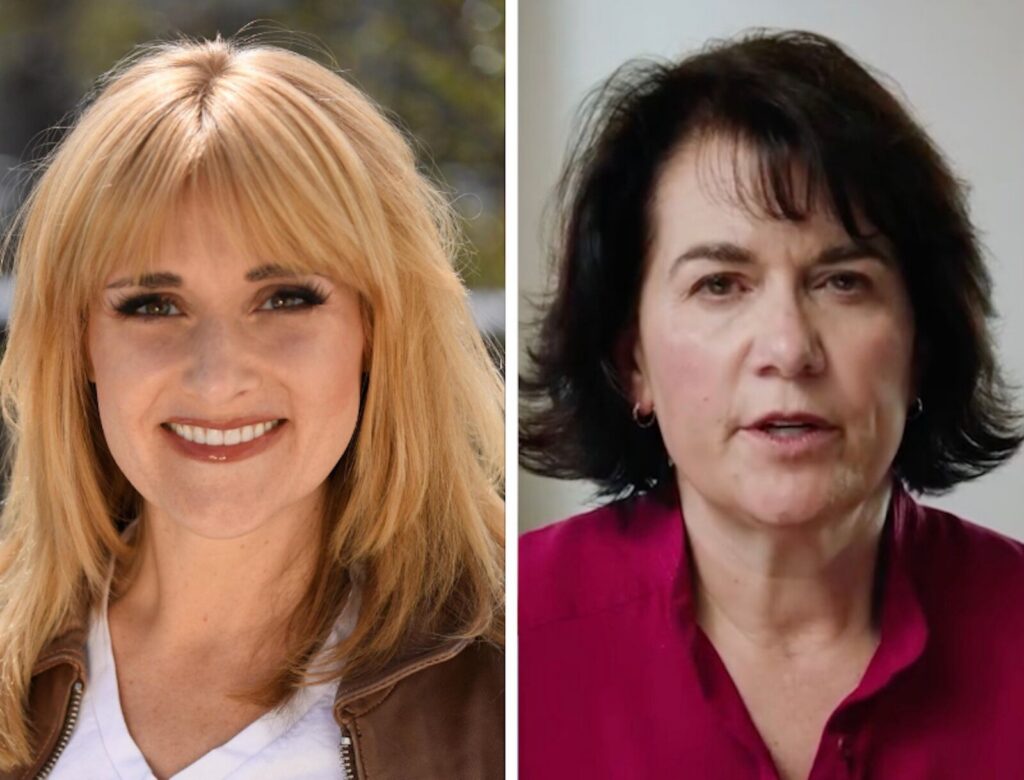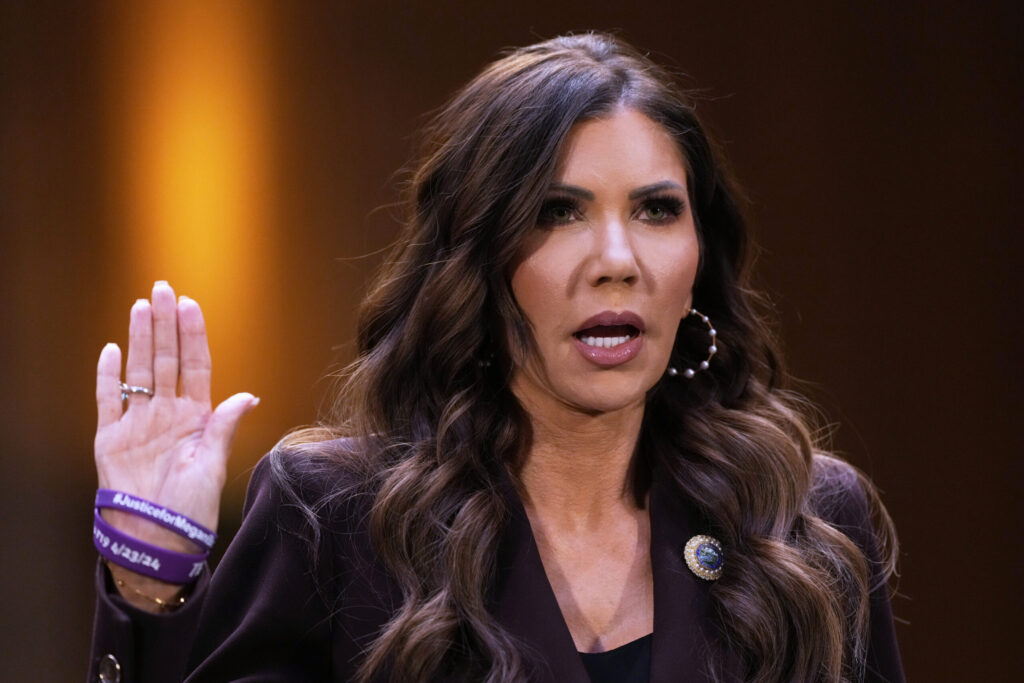Money, experience differ in Denver DA race
Despite an earlier quarter of a million dollar loan from herself to her campaign, unaffiliated Denver district attorney candidate Helen Morgan has raised far less money than her Democratic opponent, Beth McCann.
But Morgan enjoys a comfortable funding advantage in terms of money on hand, as the campaign for the 2nd Judicial District that covers the City and County of Denver moves into the final two months. And both candidates know raising money from here on out, as it has been to date, will be the biggest challenge.
For the Sept. 6 campaign filing report to the Colorado Secretary of State, the Committee to Elect Helen Morgan reported 51 contributions raising $5,672 between July 28 and Aug. 31, with expenditures of $33,766.31. But since the committee began the reporting period with $181,184.72 on hand, it still had $161,735.49 in the bank.
In the same period, the McCann for Denver DA committee listed 215 contributions that raised $42,931 during the reporting period, had expenditures of $3,355.66 and $67,484.59 on hand.
For the entire 2016 campaign filing period to date, the McCann committee (McCann ran and won a three-way Democratic primary race earlier this year) raised more than the Morgan committee, $472,917.92 to $335,924. But with expenditures of $404,433.33, compared to the Morgan committee’s $174,188.51, the McCann committee had far less money on hand, $67,484.59, while the Morgan committee reported $161,735.49 in the bank.
In a list of the top 10 candidate committee fundraising totals for statewide offices on the secretary of state’s website, McCann for Denver DA was second, followed by the Committee to Elect Helen Morgan in third.
The winner in the Nov. 8 general election will succeed term-limited District Attorney Mitch Morrissey, and either Morgan or McCann will be the first female DA in Denver history. Morrissey, who defeated McCann in 2004, is listed as a $400 contributor to Morgan’s campaign in the latest spending report. He could not be reached for comment.
Running as an independent has always been more challenging when it comes to fundraising. With a state donation cap for all candidates – member of a political party or not – of $400 from an individual, Morgan has to campaign on donations of $10, $15 and $25, without the prebuilt financial support network of one of the two major parties.
“I have to invest in myself fully and focus on the number one priority of meeting voters, listening to their concerns and explaining my qualifications,” she said.
Taking a page from former Denver Mayor Wellington Webb, who drove a vehicle with sneakers painted on the side in his first campaign for that office, Morgan drives a van with “Helen on Wheels” and her picture painted on the sides.
“It’s all about community and meeting people where they live,” Morgan said of the van. “And it’s also the fact that I’m a prosecutor, not a politician. That’s my thing.”
McCann is seeking the DA’s office for a second time and said running as a Democrat helps with campaign activities like canvassing and making phone calls, leaving her and her campaign the burden of fundraising.
“I think we’re holding our own with fundraising,” McCann said. “It’s hard when my opponent loaned her campaign $250,000. That’s a lot of money to make up when you can only accept $400 from each individual. To give yourself a quarter of a million dollars is just crazy.”
And since the DA is a “down ticket” race, McCann said, it’s even harder to get some traditional large donors to donate.
Backgrounds, experience show differences
Morgan graduated from the University of Minnesota in 1991, then taught Spanish and seventh grade. She also was a clerk for a judge in Minnesota and moved to Colorado in 1993. She landed a job in the Denver district attorney’s office in February 1994 and is now the office’s chief deputy DA of county court cases, where she supervises 13 lawyers who handled more than 12,000 cases last year.
McCann worked eight years in the Denver DA’s office, including a stint as chief deputy DA. She left the office in 1983 and was also deputy state attorney general, Denver’s first manager of safety, and is currently a state representative for District 8. McCann started the Safe City program to help prevent youth violence in 1993.
Morgan, 51, collected more than 1,300 petition signatures to get her name on the ballot, while McCann, 67, defeated Michael Carrigan and Ken Boyd in the June 28 Democratic primary.
Morgan first considered running for Denver DA 12 years ago, but could not find anyone to manage her campaign the way she wanted to run as a Democratic candidate.
“I wanted to run a campaign that was true to myself, and I take myself very seriously,” Morgan said. “So running as an independent seemed like the way to go. And to me, it doesn’t really matter if you’re with one party or another. We all have the right to vote.”
As chief deputy DA, McCann supervised other attorneys, and as deputy attorney general, oversaw more than 30 trial lawyers and staff. Since being elected state representative eight years ago, McCann has written and passed criminal justice legislation.
“I just think all that gives me a broader view of how to make the system work better,” McCann said.
Political influence questioned
Morgan said she has been disappointed at how many political insiders in Denver have anointed McCann the next DA and thinks voters want someone with the technical expertise, leadership and vision to handle the job, so it doesn’t matter what political affiliation the right candidate has next to their name.
After knocking on well over 5,000 doors in about 40 precincts, Morgan said she met many residents who did not belong to any political party.
“They weren’t excited about either presidential candidate and didn’t even bother asking me about my affiliation or experience,” she added. “I kind of found it very refreshing, because the political establishment wants everyone to do things one way, but that’s not what the people want.”
McCann said the “breadth and depth of my management experience” is the biggest difference between herself and Morgan.
“I’ve had community involvement throughout my career,” McCann added, including three or four town hall-style meetings as a state representative every legislative session. “I think I bring a unique set of qualifications, and I know how to try cases and be a prosecutor. I also have a management background and this is that type of job.”
Change needed in officer-involved cases
Some neighborhood and community activist groups have criticized current DA Morrisey for never prosecuting a city officer involved in a serious injury or fatal shooting incident. Morgan said Morrisey is not reluctant to do so, but has to have a case that can be proven to the legal standard of “beyond a reasonable doubt.”
If elected, Morgan said she would change how such cases are reviewed, something many in Denver don’t trust in the wake of several high profile cases in recent years. After the initial investigation by police and the DA’s office, Morgan would establish an independent review commission made up of criminal justice experts from outside the 2nd Judicial District to review the facts and come to their own conclusion regarding charges. As DA, Morgan would still have the final say.
The independent review would run at the same time as the DA and police agency review, so it would not extend the time involved in coming to a decision, she added. If serious or fatal injuries are involved, Morgan would also have two deputy prosecutors review the case independently to help decide if charges are appropriate.
Morgan added she has said “no” to Denver police officials regarding cases more times than she cared to count, but noted the Denver Police Protective Association had endorsed her for DA.
McCann said she would involve Denver’s Office of the Independent Monitor more closely in officer-involved cases “for better review and a wider berth of reviewers.”
“If I decide to not prosecute an officer involved in a shooting incident, I want to hold a town hall meeting to go over the facts of the case and explain the process so people get the answers they need,” McCann said. “Being more transparent is important because we all feel a need to get equal justice and fair treatment if there is a run in with law enforcement.”
Time in, out of DA office plus or minus?
Morgan points out the main difference between herself and McCann is that McCann last worked in the Denver DA’s office in September 1983.
“I think the issue is prosecuting cases, not the last time you were in a trial,” Morgan added. “I think voters want a combination of practical and policy experience or an overarching philosophy they agree with. Being DA is not about saying what the audience wants to hear, either. It’s talking about the facts of a case and sometimes that makes you unpopular.”
“She talks a lot about community involvement, but I’ve been there and a good deal of my career has been addressing issues for the city,” McCann said. “I think that makes me ready to hit the ground running. I have the contacts to draw on for support and ideas and I think I’ll look at the whole criminal justice system with a much wider lens, not just as a prosecutor.”
“I’m not saying that Beth has not done good in the community or that she doesn’t care,” Morgan said. “I like Beth. But this is a technical job that requires leadership and the ability to collaborate. If you don’t have either, that’s when you create mistrust. And if you don’t make decisions based on the facts, that doesn’t serve anyone.”
McCann said Morgan’s 22 years in the DA’s office makes her more likely to continue things status quo.
“I think the city is looking for a change and they need someone with experience in city issues, but with a fresh look at things instead of someone who’s whole career has been in the office,” McCann stated.
For Morgan, “This is the only elected job I want, I do not want to run for any other office, ever,” she said.











